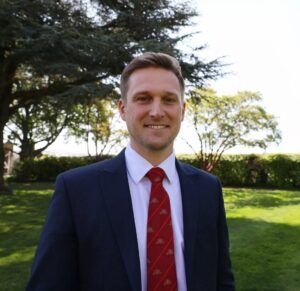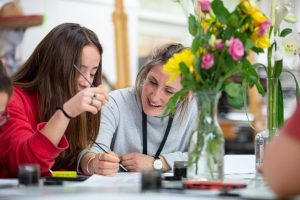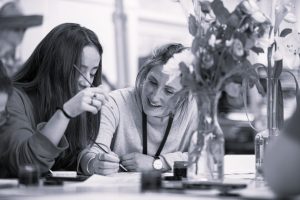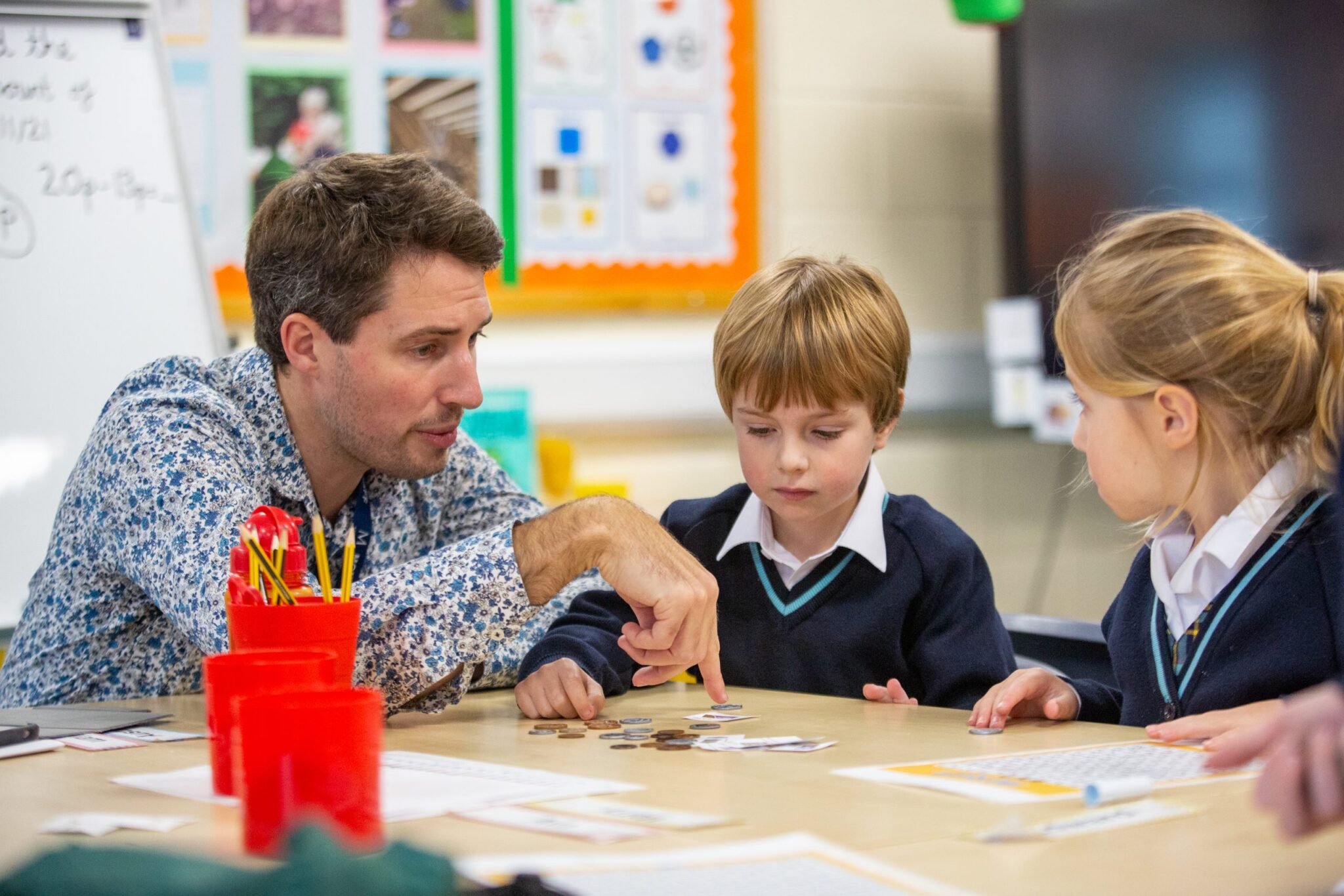Reflections on My First Year as a Houseparent
When I stepped into the role of Houseparent (Sutton House – Lord Wandsworth College), I did so with a clear set of expectations. Having worked in boarding schools for over a decade — including positions as Head of Sixth Form, Deputy DSL, Head of Department, and Assistant Housemaster — I felt confident in my understanding of the role. As I reflect now, I realise how crucial that breadth of prior experience has been in helping me manage the responsibilities effectively. The role is incredibly rewarding, but certainly demanding, and I’m thankful to have begun with a strong foundation behind me. The skills I have developed in leadership, communication, problem-solving, and pastoral care continue to prove invaluable in navigating the challenges of the Housemaster/Houseparent position.
I’ve been incredibly fortunate to learn from some exceptional housemasters, deputy heads, and mentors throughout my career. Each has shaped my thinking and contributed to the holistic, values-driven approach I bring to both teaching and pastoral care. While there are too many to name individually, I’m deeply grateful to everyone who’s provided guidance. Early on, I learned the importance of being a sponge — seeking out mentorship, learning from everyone, and always striving to grow — a point I develop further in this blog post.
What I didn’t fully anticipate, however, was how much becoming a parent would shape my approach to leadership and the role of housemaster. It gave me a “superpower” — a deeper empathy, a sharper instinct for reading between the lines, and a natural way of connecting with other parents and guiding their sons or wards. This parental perspective has been invaluable.
Building a Shared Ethos
Within the boarding house, we’ve worked together with the Upper Sixth to build our ethos. We wanted to establish guiding values that would align the boys with the spirit of the school. Using “SUTTON” as our foundation, we created an acronym that reflected our shared aspirations for the boys to be: Sincere, Understanding, Trustworthy, Team Players, Optimistic, and Never Give Up.
These values aren’t just words on a poster (though yes, we have some of those!). We made them tangible by designing canvases, creating a house tie, and making them central to our conversations — a central theme, or centre of gravity, if you like. The tie has become a physical symbol of what we stand for — worn by Upper Sixth students and awarded to Lower Sixth boys who make outstanding contributions to the house community in a show of overt role modelling.
Some of the earliest recipients of the tie in L6th were those who completed Mental Health First Aid training or Peer Mentoring qualifications. These aren’t traditional badges of honour — like captaining the 1st XV — but they are profoundly meaningful. I’ve always believed in celebrating character over status and integrity over position.
When it comes to role models and the importance of positive role modelling, especially for young men, one moment that stands out for me was showing the house Gareth Southgate’s Dimbleby Lecture. Southgate’s powerful words on the significance of role models for young men resonated deeply with us. At Sutton, we work hard to make those role models visible — not just through their achievements, but in the way they carry themselves.
This moment also felt particularly timely, as the zeitgeist in schools at the time was the Netflix series “Adolescence,” which highlights the “brainwashing” of many young men online by toxic influencers and the “manosphere.” In my view, the route out of this is clear: positive male role models who can show the way.
Presence Over Paperwork
Naturally, the role comes with a significant amount of administration — safeguarding, logistics, endless communication with parents, pupils, and staff. It can be overwhelming. But the heart of this job isn’t in the paperwork — it’s in presence. It’s about knowing each boy, guiding them, coaching them, and offering the right words at the right time.
Coaching has always been my instinctive approach. I started my career as a graduate sports coach, and that ethos still drives my leadership today. I see every challenge as a conversation, every misstep as a coaching moment. Whether it’s helping a boy navigate conflict, reflect on his choices, or celebrate his growth, it’s that consistent, one-to-one presence where real impact happens.
The Long Game of Change
This year, we’ve done significant work at Lord Wandsworth College around unconditional positive regard and becoming more trauma-aware. This approach has shaped how we understand behaviour and the time it takes to change.
The reality is: we can’t control every decision a young person makes. Each pupil has their own story, and they’ll make choices based on much more than what happens within our walls. But what we can do is set clear expectations, model emotional safety and consistency, and trust that over time, young people will internalise the culture we’re creating.
As Jacob Riis said:
“When nothing seems to help, I go and look at a stonecutter hammering away at his rock, perhaps a hundred times without as much as a crack showing in it. Yet at the hundred and first blow, it will split in two — and I know it was not that blow that did it, but all that had gone before.”
Behavioural change doesn’t come from a single conversation, detention, or reward. It’s the small, steady nudges — compassionate boundaries, honest conversations, belief in the person behind the behaviour. Every moment of positive regard matters, even when the impact isn’t immediate.
Staying Grounded
The volume of communication in this role can be overwhelming, especially in a digital age. To stay grounded, I rely on sport, exercise, and time outdoors. Without that balance, I’d be chained to a screen. One of the best things I’ve done this year is to walk the touchlines — watching fixtures, chatting with parents, and showing the boys that we’re there for them both on and off the pitch… not to mention staff football and staff cricket — sacred events blocked out in my timetable.
Surprisingly, as someone who does not really enjoy social media, I’ve also really enjoyed writing the weekly newsletter and updating our Instagram pages. It’s become a way to share the story of Sutton House — the little moments that make boarding life special: quiz nights, muddy matches, quiet acts of generosity. It’s a joy to highlight what makes our house unique and to celebrate the young men that make it what it is.
Constantly Learning
Another vital part of the role, in my opinion, is not stagnating. I’m always looking beyond education for leadership inspiration. The work of Daniel Goleman (on emotional intelligence), Michael Fullan, and John Kotter — whose insights from my master’s in educational leadership continue to guide me — has been instrumental. I’m also a big fan of Ryan Holiday, whose writing on Stoic philosophy has become a daily habit. We now share a “Quote of the Day” on the house whiteboard — just a small way to encourage the boys to think and reflect.
Final Thought
This job is relentless, but it’s also the most rewarding and most enjoyable work I’ve ever done. You walk alongside boys during some of the most formative years of their lives. You see them at their best and worst. You get to be a steady hand, a quiet encourager, and sometimes, a very loud cheerleader. It’s a role built on trust, time, and those tiny moments that, more than anything else, shape young men.

Housemaster – Sutton House – Lord Wandsworth College
Categories: Blog


